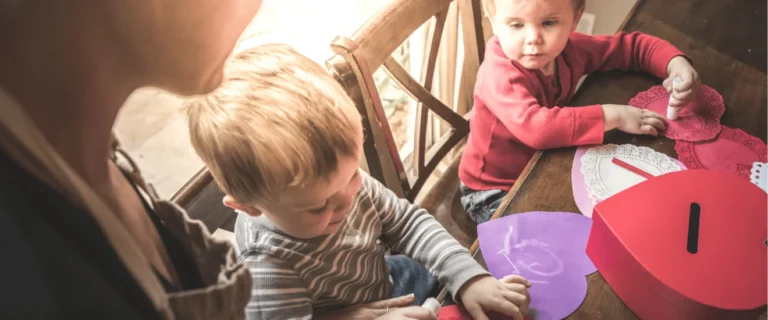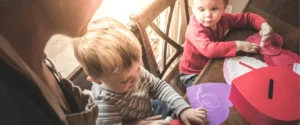The 4th of July is a time for celebration, with fireworks, barbecues, and spending time with loved ones. However, for families with young children on the autism spectrum, these festivities can be overwhelming.
Here are 8 autism-friendly tips to ensure a joyful and comfortable Independence Day for the entire family!
1. Plan Ahead
Preparation is key to ensuring your child feels secure and comfortable. Discuss the day’s schedule in advance with your child. Use visual aids or social stories to help your child understand what to expect throughout the day and evening. Books and videos about the 4th of July can also help your child understand what to expect.
Planning ahead and clearly communicating what the day will look like can greatly reduce your child’s uncertainty and anxiety around this potentially new holiday and experience.
2. Create a Sensory Friendly Environment
Many traditional 4th of July activities, like fireworks, can be overwhelming for children with autism due to sensory sensitivities. Here are some ways to create a sensory-friendly celebration:
- Noise-Canceling Headphones: Fireworks and loud noises can be distressing. Equip your child with noise-canceling headphones to reduce the impact of these sounds.
- Comfort Items: Bring along favorite toys, blankets, or other comfort items that help your child feel secure in unfamiliar environments.
- Safe Foods: Whether or not you are celebrating at home, you want to make sure to have some of your child’s safe food on hand.
- Quiet Spaces: Ensure there are designated quiet areas where your child can retreat if they need a break from the festivities.
3. Alternative Celebrations
4th of July celebrations often center around fireworks displays and crowded gatherings, but those aren’t your only options. Consider these alternatives:
- Daytime Celebrations: Opt for daytime activities such as a family picnic, parade, or visit to a local park. These events are typically less crowded and less noisy than evening fireworks shows.
- Indoor Fireworks: Use videos of fireworks or projector displays to simulate the experience without the loud noises. This can be a fun and safer alternative for children with sensory sensitivities.
- Crafts and Activities: Try some 4th of July-themed crafts and activities. Creating decorations, painting, or baking patriotic treats can be enjoyable and calming. You can find some great crafts and activity ideas on websites like Pinterest!
Just because the 4th of July is often celebrated a certain way does not mean you have to do it that way. Figure out what works best for your family and create your own unique family traditions around the celebration.
4. Gradual Exposure to Fireworks
Even if your child has noise sensitivities, they may still be interested in fireworks. If your child is showing an interest in fireworks consider gradually introducing them to the experience by trying things like:
- Distance Viewing: Watch fireworks from a distance, where the noise is less intense.
- Recorded Fireworks: Start with videos of fireworks to acclimate your child to the sights and sounds in a controlled environment.
- Small Fireworks: Begin with small, quieter fireworks at home, such as sparklers, to help your child get used to the concept.
5. Focus on Routine
Try to keep your child’s routine as consistent as possible. Maintaining a routine can help your child feel more secure on a day filled with unusual activities. If you can try to keep meal times, nap times, and other daily routines on the same schedule as usual.
6. Inclusive Family Activities
Involve your child in planning and preparing for the day. Allow them to choose some activities or decorations, and incorporate their interests into the celebration. This inclusion fosters a sense of control and participation.
7. Monitor and Adapt
Pay close attention to your child’s cues throughout the day. If they seem overwhelmed or distressed, don’t hesitate to modify your plans. That may mean arriving late and/or leaving early from an event. Flexibility is important to ensuring a positive experience for everyone involved.
8. Communicate Your Child’s Needs
If you’re attending a larger gathering, be sure to communicate with hosts about your child’s needs. Most people are understanding and willing to make accommodations. Additionally, consider bringing along a trusted friend or family member to help manage the day.
Wishing everyone a safe and happy autism-friendly 4th of July!






